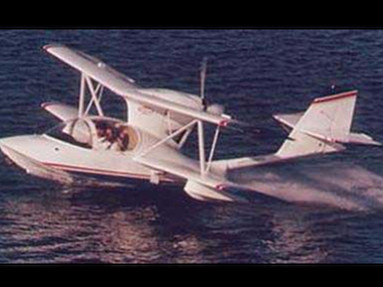
Originally the Petrel amfibian.
--- The Seastar, whose design now go back for over 10 years, originates from France and Brazil.
Seastar, a variation from the original concept, has a larger enclosed cockpit designed especially with the North American pilot size and requirement in mind. The hull is wider and slightly longer from the previous models and an improved step in the hull, enhances water take-off capability greatly. A longer lower wing with the fuel tank in the wings adds to flying safety and overall performance. These additional design changes have made the Seastar the most advanced and desirable amphibian airplane on the market today. There are nearly one hundred units Seastar type aircraft flying throughout the world today.
Currently the Seastar is only available as a kit, but soon, AAC Amphibian Airplanes of Canada LTD will be supplying the North American and Worldwide markets with the ready to fly Light Sportsplane version of the Seastar, to be known as the SeaLoon. The complete Seastar fast build kit consisting of all structural noble hardware and components will still be available for the foreseeable future.
Our goal is to have a good relationship with Seastar owners and builders, similar to that of the Airstream Organization, and to build a product with utmost emphasis on safety and reliability. We will strive to promote future products, get-togethers and air ventures worldwide. We look forward to having each Seastar owner as a personal friend and potential representative of the Seastar fraternity with good long-lasting relationships with everyone worldwide.
Text from: http://www.seastaramphibian.com/